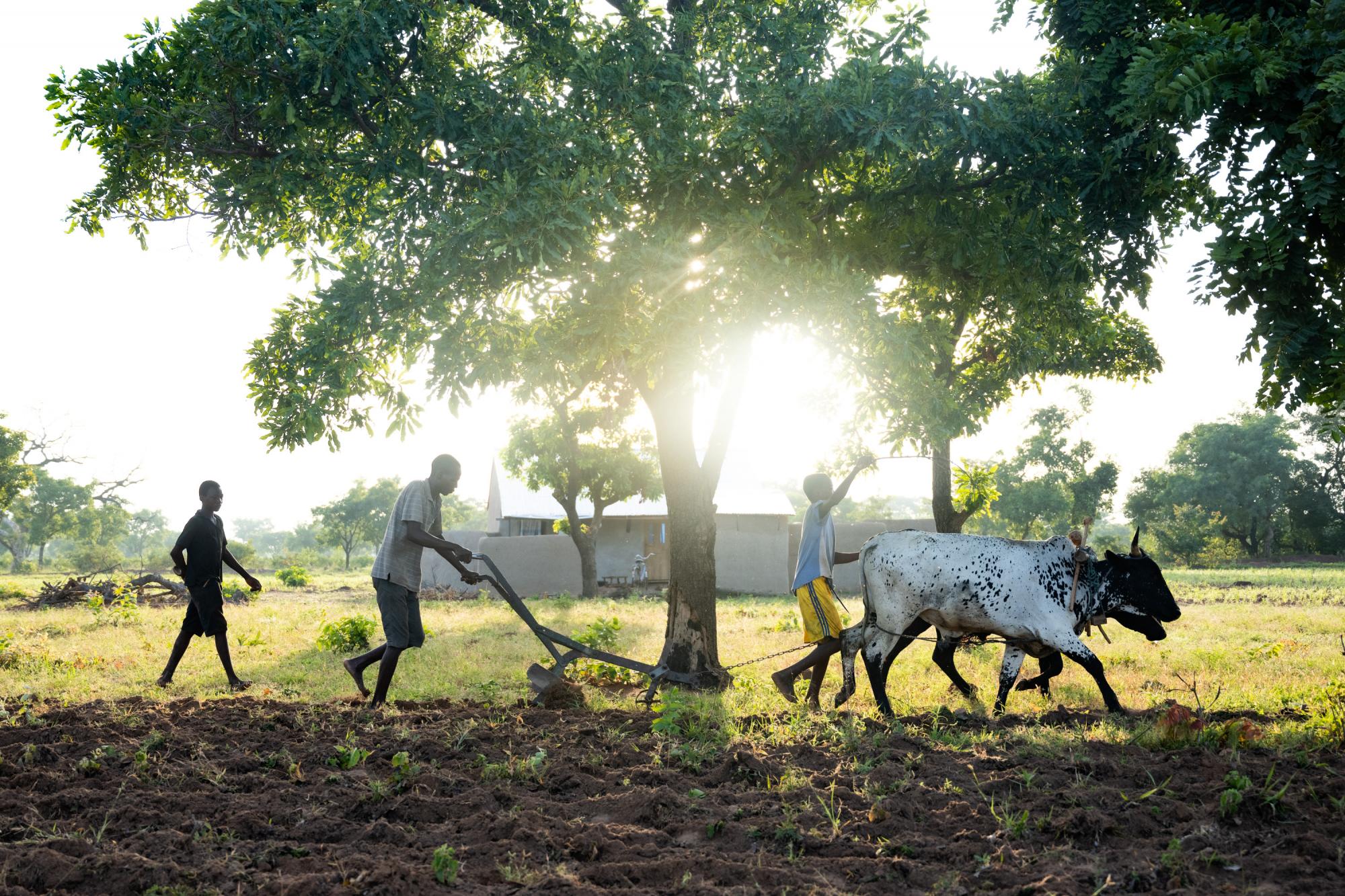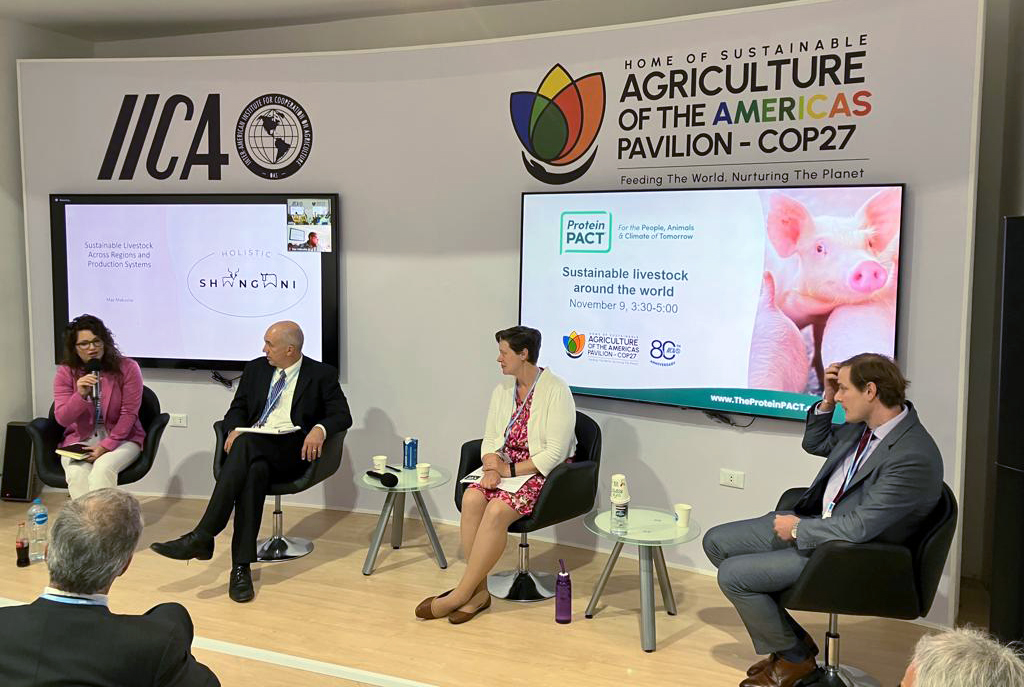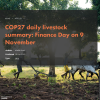
COP27 daily livestock summary: Finance Day on 9 November
Core message
Tune in daily for our summaries of CGIAR livestock-related events throughout COP27, which will be posted here on whylivestockmatter.org.
The International Livestock Research Institute and the CGIAR Research Initiative on Climate and Livestock kicked off their participation at COP27 fittingly on ‘Finance Day’ at the America’s pavilion session on Sustainable livestock across regions and production systems. Hosted by the Protein PACT, the session brought together livestock partners from across the globe to provide different perspectives on how they are contributing to greater adaptation and mitigation efforts in the livestock sector.
The need for greater resilience emerged as a common theme, backed by better knowledge sharing and an acknowledgement that solutions need to be tailored to different production systems.
‘We are not so different at after all,’ said ILRI’s climate policy scientist, Laura Cramer. ‘We understand that context matters and that extensionists are critical to getting messages to farmers everywhere, so that they receive reliable and usable climate-related knowledge and information.”

From left: Moderator (Protein Pact), Bill Hohenstein (USDA), Laura Cramer (ILRI) and Gianni Motta (INAC). Max Makuvise joined online from Zimbabwe. (Photo Cynthia Mugo/ILRI)
USDA energy and environmental policy director, Bill Hohenstein, highlighted the US’ commitment to half emissions by 2030 and achieve net zero emissions by 2050. To reach these goals, the country will be investing US$40 billion in climate investments over five years in agriculture, conservation, forest health and research.
Cramer, who brought in the developing country perspective, spoke about the role that livestock play as a climate and resilience solution for farmers in low- and middle-income countries, adding that greater research and investments in climate adaptation solutions are urgently needed. Future global losses in productivity from heat stress and climate variability are estimated at around US$55 billion annually. The worst hit will be livestock producers in Africa and Asia, who depend upon livestock for income, nutrition, to farm their lands and resilience against climate impacts.
Accountant turned livestock entrepreneur, Max Makuvise, from Zimbabwe, called for greater south-south and north-south collaboration to increase farmers’ access to research on adapted livestock breeds, feeds and markets. Zimbabwe was once a major exporter of livestock products to Europe, but climate change impacts have severely affected productivity.
Gianni Motta, head of innovations and scientific support at Uruguay’s National Meat Institute (INAC), spoke of his country’s commitment to economically profitable, socially responsible and environmentally sustainable production of livestock. This has been possible through investments in productive breeds, land management, technologies to track production and enforcement of laws that protect key natural resources. Much of this has been driven by Uruguay’s dependence on agri-business, which comprise majority of the country’s GDP and 75 percent of the country’s exports.
A big takeaway of this session is that the exchange of knowledge, experience and finance in priority areas across the globe are key to advancing efforts to amplify the benefits of livestock and mitigate the negatives. But we must not forget to ensure that those benefits are transferred to the people who need them most.
“We want to share in the research that is ongoing at ILRI. We want what is happening at USDA, we want what is happening in Uruguay,’ said Makuvise. ‘Because what we want most is productive farmers, who are efficient people who can be in charge of their livelihoods.”
